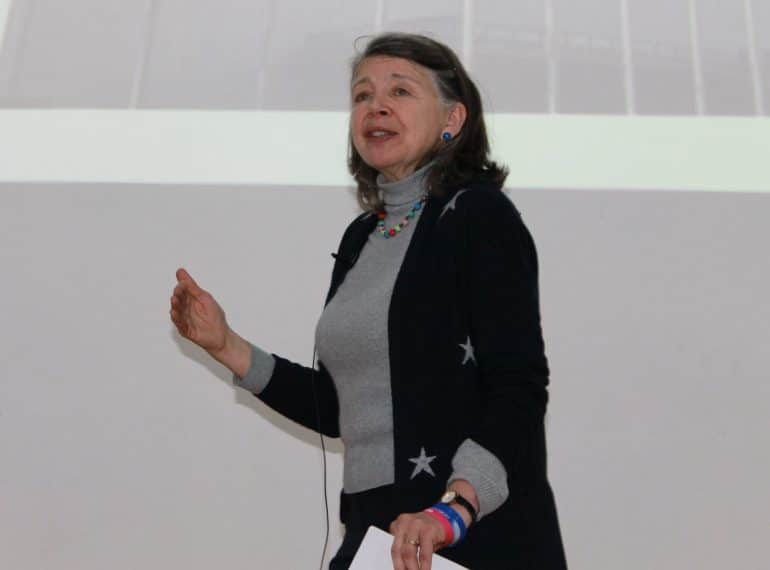
A Lower School lecture about the role and experience of women led to lively debate amongst the boys.
Alice Fookes, an Awareness-Raiser for UN Women (the United Nations organisation dedicated to gender equality and the empowerment of women), gave a wide-ranging talk on issues ranging from the limited access women and girls have to health care and education in certain parts of the world to the leadership & political participation of women. Amongst other topics she brought forward were: negative cultural practices; how to end violence against women and girls; economic empowerment, and HIV & AIDS.
She asked the boys at QE to talk to the women in their lives – whether mothers, sisters or cousins – about their experiences and to try to understand how they felt about issues.
Headmaster Neil Enright said: “Alice brought an important and thought-provoking contribution, which engaged the boys. We aspire for our boys to be among the leaders in their generation; to do so effectively they will need to be able to understand issues from a broad range of perspectives and to analyse how others are affected by them.”
Ms Fookes talked about the work of the United Nations and its flagship programmes for women, including promoting safer cities, providing decent work and social protection, and the development of female humanitarian programmes in refugee camps. She outlined the UN’s desire to end discrimination and violence against women and girls, to eliminate harmful practices, such as child marriage, and to encourage women’s participation and leadership in decision-making.
In the Q&A session, there was a discussion of what feminism means and whether there are different versions of it. She averred that men could be feminists, stating that her husband and son would describe themselves in that way, and that feminism does not have to be about being anti-male, suggesting it is more about genuine equality.
“This was also another opportunity for boys to practise asking effective questions,” said Mr Enright. “It enabled them to explore issues more deeply and to challenge an aspect of an argument.”
